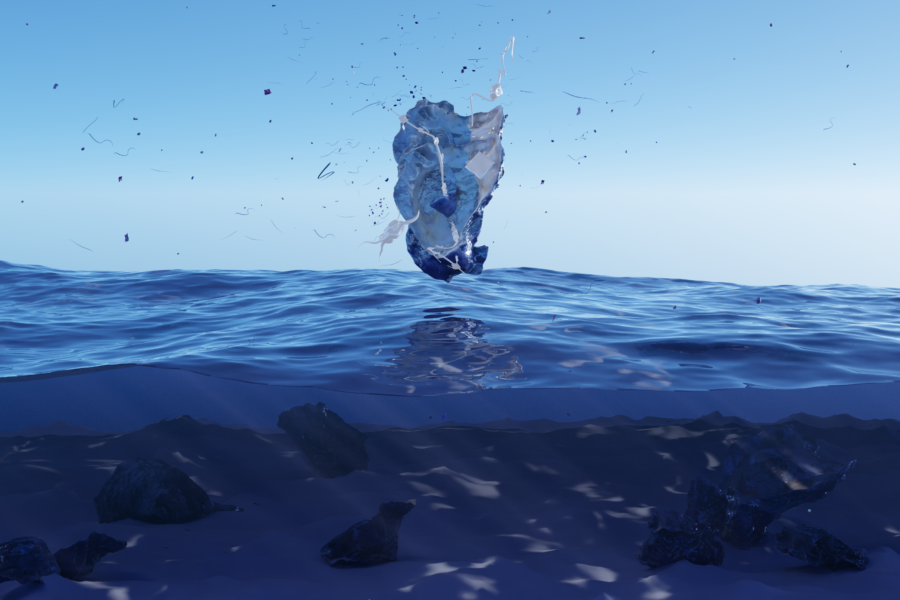Enter: toxicitysrea.ch
When our ancient ancestors crept out of the primordial soup, they had to effectively “fold” the ocean back into themselves. This is called the Hypersea—a biological concept describing the interconnected network of nutrient-filled fluids flowing through all land-based organisms. Our blood, interstitial fluids, gastric juices, sweat and urine are daily reminders of these shared aquatic origins. Today, however, there is another material entanglement (re)connecting marine and land-based organisms: plastic. Plastic debris has spread to every corner of the earth through air and water currents. It breaks into ever-smaller bits that never fully disintegrate, and pass from environments into our bodies. In a year of pandemic, where pressure on food systems led to a worldwide public health crisis, contamination reminds us that our health is also inextricably entangled with the health of our ecosystems.
Departing from the notion of shared contamination, Plastic Hypersea (the spill) is part science-fiction film, part eco-immunological environment experienced through many different audiovisual “pools” that “infect” one another. From two human bodies attempting to extend their sense of self to include the waters around them, to microscopic footage of cells ingesting microplastics, and 3D scans of an ancient shipwreck, Tonn prompts us to consider how we can shift our understanding of our individual health towards a more ecological world view. Plastic Hypersea (the spill) is a multi-channel film and animation.
Performers: Kenzo Kusuda & Goda Žukauskaitė. Sound: Jonathan Reus.
Plastic Hypersea (the spill) is part of the online exhibition Toxicity’s Reach commissioned and produced by Abandon Normal Devices, curated by Dani Admiss. Supported using public funding by Arts Council England and Creative Industries Fund Netherlands.
Plastic Hyperse (the spill) was made possible with the support of: BAD Awards; Creative Industries Fund Netherlands; Department of Environment and Health; VU Amsterdam and Department Molecular Cell Biology & Immunology, Amsterdam UMC – location VUmc.




